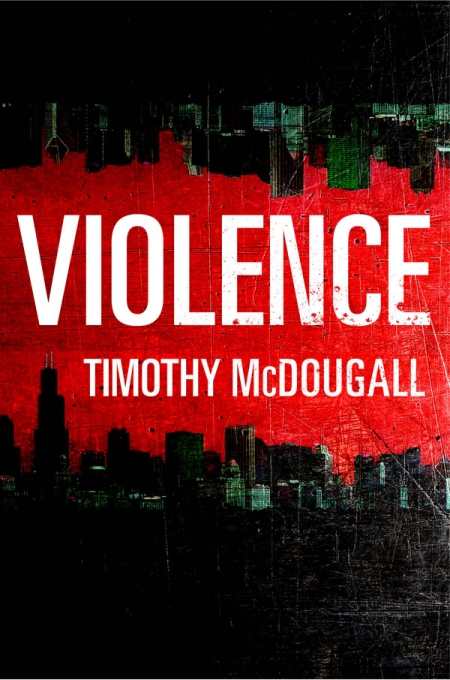Violence
It isn’t what you think. Debut novelist Timothy McDougall does open his story with a graphic murder scene, and the title is Violence, so it’s reasonable to expect the book to continue with nonstop brutality. But instead, McDougall develops the character of Noel Anderson to show how crime victims might respond to acts of violence when the American justice system lets them down.
Anderson has lost his wife and daughter at the hands of three foulmouthed criminals, brothers Derek and Gabriel Lysander and their sidekick, Ruben Roney. In his grief, Anderson numbly goes through the necessary legal process, surviving a lengthy murder trial that sometimes taxes even the reader’s patience with detailed legal definitions. Once the formalities are over, Anderson’s reputation as an upstanding citizen is restored and the murderers must serve their sentences. All is clear. Or is it?
In the second half of McDougall’s story, questions of guilt and innocence become less and less transparent, and this is when the competent police procedural gives way to a page-turning mystery. The criminals return to the streets one by one, and their safety is now in question. Anderson is a very controlled man, but his anger slips out, revealing a deep capacity for rage. Readers will wonder if he will be able to resist taking matters into his own hands.
McDougall’s screenwriting background informs the crisp dialogue and rapid scene changes that move the action along at a brisk pace. Characters like Anderson’s new girlfriend Jeannie, a born-again Christian with obsessive-compulsive tendencies, are multi-faceted. She leads him to the church, which may explain why Anderson comes to espouse radical forgiveness. McDougall creates a complicated character by showing many different sides of Anderson. For instance, Anderson surprises everyone when he says he forgives the killers. Usually reticent to the point of appearing cold, Anderson now appears on an outrageous television talk show to spread his message. Has he really risen above the need for vengeance, or is it a clever cover-up designed to deflect scrutiny when the first released criminal loses the protection of his jail cell walls?
McDougall makes it hard to guess what will happen. Anderson’s deliberately calm demeanor plays against the increasing agitation of a driven police detective and a rogue private investigator, each of whom have their own stake in the outcome. Add to that Jeannie’s unexplained past and unpredictable boyfriend, and you have a perfectly puzzling whodunit.
Violence keeps readers in suspense with plot twists until the very end, emphasizing the uncertainty that so often goes along with the pursuit of justice.
Reviewed by
Sheila M. Trask
Disclosure: This article is not an endorsement, but a review. The publisher of this book provided free copies of the book and paid a small fee to have their book reviewed by a professional reviewer. Foreword Reviews and Clarion Reviews make no guarantee that the publisher will receive a positive review. Foreword Magazine, Inc. is disclosing this in accordance with the Federal Trade Commission’s 16 CFR, Part 255.

